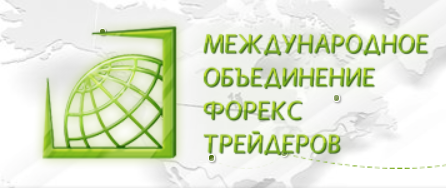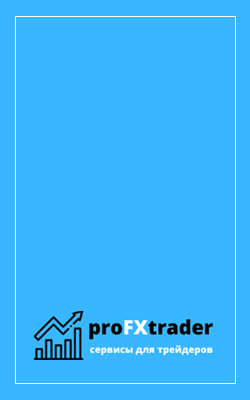What is over-the-counter trading? An investor’s guide to OTC markets
Do not infer or assume that any securities, sectors or markets described in this article Us currency trading were or will be profitable. Historical or hypothetical performance results are presented for illustrative purposes only. The OTC Pink tier has no financial standards or reporting requirements. Investors should exercise caution when considering these very speculative securities.
Regulatory Oversight
Over-the-counter trading can involve stocks, bonds, and derivatives, which are financial contracts that derive their value from an underlying asset such as a commodity. In the U.S., the National Association of Securities Dealers (NASD), later the Financial Industry Regulatory Authority (FINRA), was established in 1939 to regulate the OTC market. OTC markets have a long history, dating back to the early days of stock trading in the 17th century. Before the establishment of formal exchanges, most securities were traded over the counter. As exchanges became more prevalent in the late 19th and early 20th centuries, OTC trading remained a significant part of the financial ecosystem. They have always had a reputation for where you find the dodgiest deals and enterprises, but might also find 3 things you should know before you buy sony stock future profit-makers among them.
Is the OTC Market Safe?
The broker reaches out to various market makers and discovers that the price has increased due to growing investor interest. TechVision eventually purchases 20,000 shares at $0.95 per share from another market maker. While OTC derivatives offer the advantage of customization, they also carry a higher level of credit risk compared with exchange-traded derivatives. This is because there is no central clearing corporation to guarantee the performance of the contract, meaning that each party is exposed to the potential default of their counterparty. OTC derivatives are private agreements directly negotiated between the parties without the need for an exchange or other formal intermediaries.
- For example, if you’re in the UK and wanted to trade stocks in a company listed in Germany, you could do it through OTCQX.
- To buy shares of an OTC stock, you’ll need to know the company’s ticker symbol and have enough money in your brokerage account to buy the desired number of shares.
- For companies not listed on major exchanges like the NYSE or Dow Jones, OTC markets offer a way to go public and raise capital.
- There are a number of reasons a stock may trade on OTC markets, but often it’s because the company can’t meet the stringent requirements of a major exchange.
- Let’s say a small company wants to sell its stock but doesn’t meet the prerequisites of an exchange, such as reaching a minimum share price or having a certain number of shareholders.
- Usually, there is no or little information about the business itself, or financial reports.
They’re typically much less expensive to trade but they’re also riskier. You can buy and sell OTC stocks if you go with a real-world, full-service brokerage. The broker will place the order with the market maker for the stock you want to buy or sell. The process is the same as it is for investors with any stock transaction. The process of purchasing or selling over-the-counter (OTC) stocks can be different from trading stocks that are listed on the New York Stock Exchange (NYSE) or the Nasdaq. Purchases of OTC securities are made through market makers who carry an inventory of stocks and bonds that they make available directly to buyers.
It must meet the new exchange’s financial and regulatory requirements. These include price per share, corporate profits, revenue, total value, trading volume and how to install sql server developer edition reporting requirements. Shareholders and the markets must be kept informed on a regular basis in a transparent manner about company fundamentals. Securities traded within this platform (i.e. tier) don’t sell for less than $5.
Examples of over-the-counter securities
For both types of orders, traders can set triggers at predetermined price levels so they can define their profit and loss amounts in advance. With that said, it’s important to keep in mind that all investments involve risk and investors should consider their investments objectives carefully before investing. The most common way for retail customers to buy an over-the-counter (OTC) stock is to create an account with a broker. Many, but not all, brokerage firms that allow you to trade on the stock market also let you trade OTCs. It spent its early years growing into what is now a technology giant.
Bond ratings, if provided, are third party opinions on the overall bond’s credit worthiness at the time the rating is assigned. Ratings are not recommendations to purchase, hold, or sell securities, and they do not address the market value of securities or their suitability for investment purposes. For instance, companies which do not meet requirements to be traded on a major stock exchange, including the shares of some major international companies, are often traded OTC instead. In addition, some types of securities, like corporate bonds, are generally traded OTC. OTC markets initially began as physical trading floors where buyers and sellers came together to exchange securities.
The OTCBB is a place for broker-dealers to make offers to buy and sell equity of companies that report to the SEC, but are not listed on the stock exchange. Companies can be listed on both the OTCBB and the OTC Markets Group. The company changed its name to OTC Markets Group in 2010 and now provides an electronic quotation platform for the broker-dealers in its network. OTCQX is the highest tier, which is reserved for established companies and has substantial financial disclosure requirements. OTCQB is designed for smaller companies, but they must not be in bankruptcy.
Competing broker-dealers, known as market makers, display the price at which they are willing to buy and sell a security. By posting bid and ask prices, market makers provide liquidity to the OTC markets. The difference between the bid and ask price is the market maker’s profit. With less transparency and oversight, OTC companies require extensive research. Analyze the company’s business model, leadership team, financials, industry outlook, and risks to determine if the stock price seems reasonably valued before buying in.
Вы должны быть авторизованы, чтобы оставить комментарий.



Об авторе